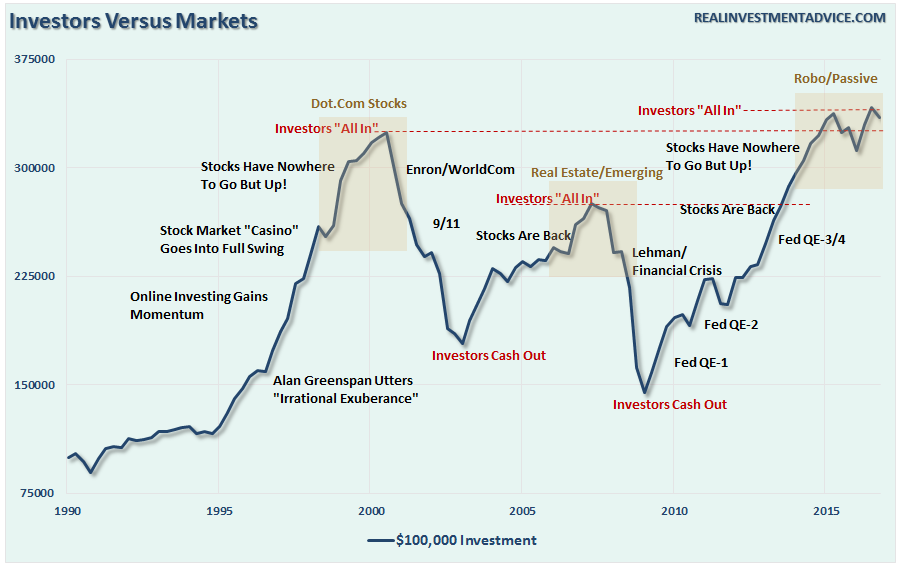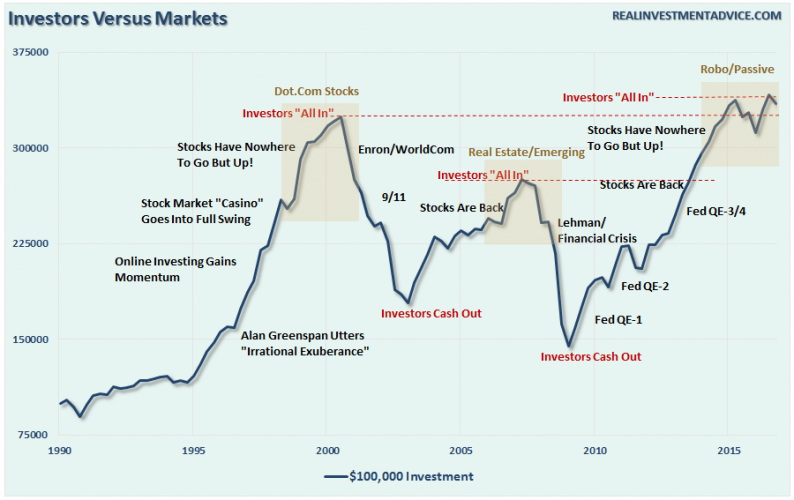Over the last several months, in particular, the number of articles discussing the shift from “active management” to “passive indexing” have surged.
I get it. The market seems to be immune to decline.
It is effectively the final evolution of “bull market psychology” as investors capitulate to the “if you can’t beat’em, join’em” mentality.
But it is just that. The final evolution of investor psychology that always leads the “sheep to the slaughter.”
Let me just clarify the record – “There is no such thing as passive investing.”
While you may be invested in an “index,” when the next bear market correction begins, and the pain of loss becomes large enough, “passive indexing” will turn into “active panic.”
Sure, you can hang on. But there will be a point where your conviction will eventually be broken. It is just a function of how much loss it takes to get there.
Over the last four years, as the Central Bank fueled surge in asset prices has climbed relentlessly higher, the psychological shift from active to passive management has gained ground. Unfortunately, this is a result of a psychological bias where recent performance is extrapolated indefinitely into the future. This is known as “recency or anchoring bias,” and is one of the primary factors that has the greatest effect on investor returns over time. As stated previously:
“However, in order to judge today’s market level, it is desirable, perhaps essential, to have a clear picture of its past behavior. Speculators often prosper through ignorance; it is a cliché that in a roaring bull market knowledge is superfluous and experience a handicap. But the typical experience of the speculator is one of temporary profit and ultimate loss.”
Yes. “YOU are a speculator.”
You have none, zero, nada, no control over the direction of an individual company, the index or the fund manager. You are simply SPECULATING on the price you paid for an asset that you HOPE to sell at a higher price to someone else in the future. That is, in its most basic form, a speculation.
The importance of that statement is that most individuals extrapolate past performance indefinitely into the future and become extremely complacent in managing for risk. This tendency is what leads investors to “buy high and sell low.”This psychology is displayed in the following chart.

The question that must be answered is whether this is just a bull market, or some sort of “new market” that will defy all previous experiences?














Leave A Comment